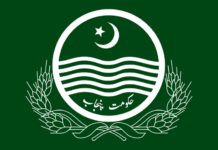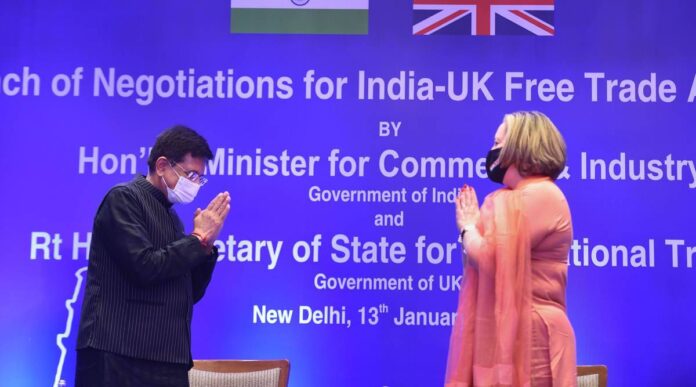ISLAMABAD: With India likely to sign a Free Trade Agreement (FTA) with the United Kingdom (UK) soon, exporters of various products in Pakistan fear they might lose important markets to India in Europe.
Being the major competitor for various products in the foreign market, India may occupy the lucrative market under a relaxed or free duty structure. And although Pakistan also enjoys a relaxed duty regime in the UK under the UK-Generalised Scheme of Preferences (GSP) system, the facility is going to conclude by the end of next year as the UK has placed Pakistan in the “Enhanced Framework” which is the same as the GSP Plus category of the EU-GSP scheme following Brexit.
According to sources, the UK may introduce a new GSP plus scheme after 2023, with limited duty facilities to countries falling under the GSP umbrella. “Though Pakistan would qualify for the new GSP plus scheme, its major competitor India may have better and larger access to the UK market under the bilateral FTA,” sources at the Ministry of Commerce informed this scribe.
It may be mentioned here that Pakistan has also requested the UK to initiate a bilateral FTA. “Initial negotiation and talks on diplomatic and departmental level have already began but the process may take time as it needs in-depth assessment and deliberation,” they said, adding that such an initiative has on the cards since the UK’s disintegration from the EU.
According to the sources, the already delayed process faces further hurdles after the change of government in Pakistan.
In the meantime, the fast tracked progress of the India-UK FTA has alarmed various sectors in Pakistan including the rice sector which is cognizant of the fact that India may occupy the UK market after getting free duty.
As per Taufiq Ahmed Khan, former vice president of Rice Exporters Association of Pakistan (REAP), the FTA between the neighbouring country and UK, which is likely to materialise by October, will ultimately create hurdles for rice exporters from Pakistan.
“We have come to know about this development through different sources and importers in UK; the said FTA is likely to be signed in October 2022 at the time of Diwali,” he said, adding that since no third country can Interfere in this matter, Pakistan needed to lobby for similar treatment under any PTA, FTA or existing GSP facility.
“Both the government in Pakistan and the Pakistani diaspora in the UK should work together and use their influence for a similar FTA with Pakistan. The government and concerned ministry in Pakistan should focus on the issue as the business opportunities in the UK have increased manifolds after Brexit,” he emphasised.
Data shows that India is a major competitor for Pakistan in the UK rice market with its export of rice to the kingdom registered at $167 million in 2021 against Pakistan’s exported rice worth $104 million out of its total export amounting to $2.159 billion registered in the last fiscal year.
Under the existing GSP regime, white milled rice from both India and Pakistan are subject to 17 per cent duty in the UK. In case of an FTA, Indian exporters of white milled rice would not have to pay any duty.
A study by the Pakistan Business Council (PBC) regarding the post-Brexit feasibility of a Pakistan-UK FTA suggests that Pakistan needs to take a proactive approach to initiate negotiations leading to the signing of the agreement.
The UK is Pakistan’s fourth largest market for exports. As much as 85 per cent of Pakistan’s exports to the UK consist of other made-up textile articles, articles of apparel, cotton and leather products. All these products currently enjoy duty-free access to the country under the GSP+. The UK is also Pakistan’s 15th largest source of imports. Major imports include iron, steel, machinery, electrical equipment, made-up textile articles, and miscellaneous chemical products.
The GSP+ scheme currently provides 96pc Pakistani exports preferential market access to the UK.
It is pertinent to note here that India considers the FTA with the UK very significant for its exporters because of the benefits their rivals from Bangladesh, Sri Lanka and Pakistan enjoy under the UK’s GSP scheme.
Whisky, cars, vaccines, basmati rice, wool, and pre-mixed tea top the list of some 240 odd products that the Indian industry has identified for import duty cuts in the United Kingdom under the proposed agreement.
Earlier in January, both countries had formally launched talks for a free trade agreement to boost bilateral trade and investments. India’s main exports to the UK include ready-made garments and textiles, gems and jewelry, engineering goods, petroleum and petrochemical products, transport equipment and parts, spices, metal products, machinery and instruments, pharma and marine items.
























03103045466
Super Page from Pakistan author Mr Abbas.